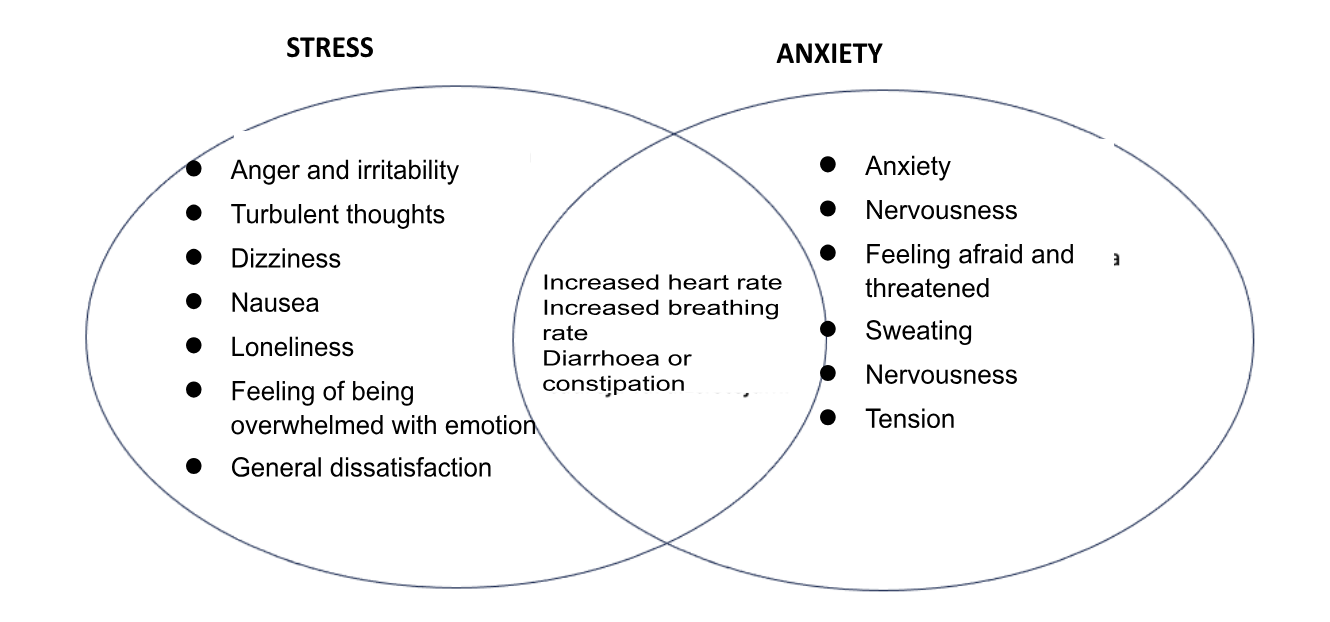SCIENCE & NATURE against STRESS, ANXIETY and INSOMNIA
Nutritionist Eva Kataja tells about stress, anxiety and insomnia.
If I asked you if you experience stress in your daily life, what would your answer be? How about anxiety or insomnia? We should all be familiar with stress, since it is a normal everyday reaction. Most people have experienced anxiety at least once in their lives as well. Perhaps someone has not recognised it, someone has not been aware of what to do about it, and someone else has run into insomnia. Although not very pleasant, these reactions are quite natural. The good news is that there are completely natural ways of helping yourself deal with them.
By stress we usually mean high levels of distress, anxiety and/or fear, however, stress is actually normal. For instance, if you have not eaten or slept enough, your body is stressed. Are you having difficulty solving a problem or making it to a meeting on time? Stress reactions are triggered again, which mobilises the energy reserves of the body and strongly activates physiological and psychological processes.
We can usually identify the cause of stress and it is most often short-term (although chronic stress does exist). Anxiety tends to be prolonged, or its cause may not be clearly understood. As for symptoms, anxiety and stress have both common as well as distinctive symptoms (see figure).

https://www.medicalnewstoday.com/articles/stress-vs-anxiety#difference
How to help yourself feel better
Fortunately, there are different ways of helping ourselves feel better, and everyone can find the one that suits them best, or a combination of methods depending on the situation. The most important thing is not to settle for the status quo, and try to find the way that works for you!
- Being physically active.
- Meditation, deep breathing and other practices.
- Giving up cigarettes and alcoholic beverages.
- Limiting the intake of caffeine.
- Maintaining good sleep hygiene.
- Having nutritious meals and/or supplementing your existing diet with herbal remedies or food supplements.
- Trying aromatherapy.
Natural remedies to help you feel better
If we were asked whether we wanted to be happy, we would most probably say that we do. Although happiness is such a subjective concept, it is clear to everyone that it is when we feel well, calm, stress-free and anxiety-free. Everyday responsibilities, worries and concerns take their toll, therefore, the question of how to help yourself feel better must be on the minds of the majority of people. In addition to good nutrition, exercise, optimal sleeping hours, time for yourself, heartfelt conversations and other activities, we may also find something useful in nature’s medicine cabinet.
Hemp seed oil and omega-3 fatty acids
The cannabis plant produces approximately 542 chemical compounds, including terpenes, cannabinoids, flavonoids, fatty acids, nitrogen compounds and many others. Hemp seed oil is oil extracted directly from the seeds, rather than from other parts of the cannabis plant as is the case with hemp oil. Hemp seed oil contains valuable polyunsaturated fatty acids, including omega-3 and omega-6 fatty acids, as well as valuable polyphenols with antioxidant properties. Hemp seed oil has a 3:1 ratio of linoleic acid (omega-6) to α-linolenic acid (omega-3), which, according to scientists, is almost the ideal ratio, although this is still under debate. In any case, cannabis oil helps us to cope with oxidative stress, free radicals and consequences caused by them (Vitorvic et al, 2021), which is very important because oxidative stress can lead to chronic inflammation, which has consequences for the whole body including our well-being.
Omega-3 fatty acids play an important role in our bodies as they are found in the phospholipids that make up cell membranes. Docosahexaenoic acid (one of the omega-3 fatty acids) is found in particularly high concentrations in the brain, retina and sperm. Scientists are increasingly investigating the effects of omega-3 fatty acids on mental health, as deficiency thereof has been linked to the development of various psychiatric diseases (Klaus, 2020).
Hemp terpenes
Cannabis contains more than 150 terpenes, which are responsible for the smell and taste of cannabis. The most common ones include limonene, alpha-pinene, beta-pinene, humulene, linalool, myrcene, etc. Terpenes are used in aromatherapy to help relieve stress, anxiety and depression, as well as synergise with other compounds in the composition of both medicines and food supplements. The highest concentration of terpenes will be found in the essential oils that are extracted from the cannabis plant. For instance, linalool, which has a lavender-like aroma, has been found by scientists to have anti-inflammatory, antimicrobial, sedative, neuroprotective and antidepressant-like effects. (Lowe et al, 2021).
Beta-caryophyllene is another terpene found in cannabis that is most notable for its pain-relieving effects due to its action on the cannabinoid receptor 2 (CB2). In an animal study, it demonstrated beneficial effects in the event of inflammatory and neuropathic pain (Klauke et al, 2013).
Griffonia
I have only recently become aware of a South African plant – Griffonia simplicifolia – a plant with seeds that are rich in 5-hydroxy-l-tryptophan (5-HTP), a direct precursor to serotonin synthesis. In simple terms, the action of the compound in the brain and central nervous system is manifested as an increase in the production of serotonin. Serotonin is a hormone that can affect sleep, appetite, pain and mood, and it is commonly called the hormone of happiness! The effects of Griffonia seed extract have been studied in animals, where its use has helped to reduce anxiety, which is seen by scientists as a positive endorsement for the use of Griffonia seed extract for the same purposes in humans (Carnevale et al, 2011).
Lavender and chamomile
Even herbs we are familiar with, such as lavender and chamomile, can help relieve stress and anxiety. Lavender has been studied both as a general mood enhancer and as an aid for sleep disorders, anxiety and various other unpleasant conditions. Lavender essential oil contains more than 100 compounds, main ones being linalool and linalyl acetate, as well as various terpenes.
Chamomile, like lavender, is rich in flavonoids, terpenes and other compounds with beneficial effects on our bodies, including anti-inflammatory, antioxidant, mood-enhancing, and others.
The list of herbal remedies that can help us feel better is by no means exhausted by the ones mentioned above, nor should they be considered a panacea. However, if we work with stressors as well as pay attention to other aspects of our lives, nature can certainly come to our rescue in our attempts to achieve the best possible results and a calmer mind.
! When taking additional supplements, make sure they are compatible with your medications or other supplements you take on a daily basis. Do not use a food supplement as a substitute for a complete and balanced diet.

